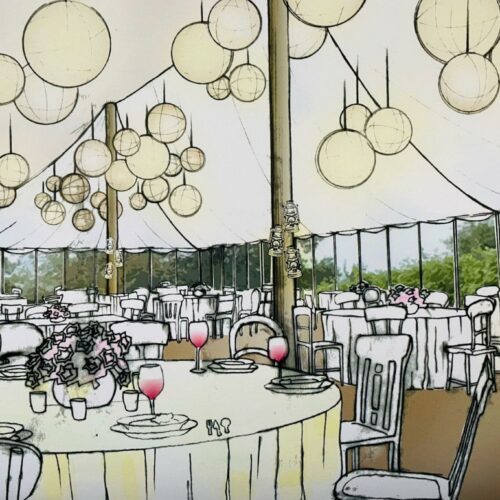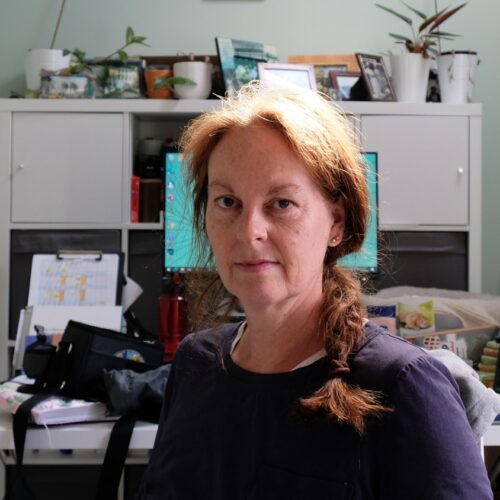
Regional group: OCA SW event review
12 January 2019 study day
Our first OCA SW study day of 2019 was led by Matt White, OCA tutor and former Programme Leader for Moving Image, who led a session on research and critical review. Thirteen OCA students attended across a range of disciplines, including painting, sculpture, textiles, creative writing.
Matt kicked off the session by asking us to share our thoughts about what research is, setting the scene for an interesting discussion.
We explored a range of research techniques, from obtaining material from primary or secondary sources, such as experiencing something at first hand or interviewing someone else, through getting access to facts from the internet, libraries or other sources. We then reviewed what could get in the way of research and the barriers we put in place to avoid starting a creative project, i.e. fear of failure, or fear of making mistakes. We discussed the idea that mistakes are an important part of the creative process that can also lead accidentally to a better creative product.
To examine the relationship between the research process and the end product, Matt introduced the group to the concept of a continuous research cycle: inspiration, action and review. He suggested that the more research cycles you apply, the richer your final work will be and encouraged us all to apply this approach to our assignment work – to allow ourselves to take our original concept or idea (inspiration); find out more (action); reflect on how to take the idea forward (review); in turn, sparking a new idea (inspiration).
By way of example, Matt shared the iterative research cycle he adopted to create a film. He talked the group through the creative process from his initial inspiration to explore the roots of capitalism, which took him via the tulip auctions in Amsterdam to undertake a journey to Turkey and find a living specimen of the first tulip species to be cultivated for human pleasure. He developed this story into a film. This was a tangible demonstration of how the process develops the initial idea into a completely different creative product. By pure coincidence, it was entirely appropriate that the curtains at our meeting venue depicted tulips!


Ultimately, research can lead you to identify what excites and inspires you to create new art – your product – and everything you do as part of your creative life is part of your research process. Our research can challenge and change the way we think about the world.
During the afternoon, students had a 15-minute slot to present their work in progress and ask for feedback and ideas on any specific issues they were experiencing. The peer review environment was supportive and allowed students to explore their creative vulnerability – an ideal way to put into practice straightaway the ideas we’d explored about research in the earlier session.
Thank you to Matt for delivering an inspired session, to the organising team for their preparation – and finally, to those who contributed and consumed ideas, cake and fruit in equal measure!
To find out more about Regional Group events see the designated area of the OCA student Discuss forum.
Image credit: Holly Woodward
|
|







Looks like an excellent event, I like the way Matt has discussed the organic nature of research and it’s effect on the intentions and final artwork. Well done for organising this OCA SW.
Sounds like a really productive and inspiring session. The cyanotypes (?) on the table look very interesting indeed.
The SW group welcome all students to our events, we offer a warm welcome and a very supportive group.
Great to take part as a Creative Writing and CAT tutor. And very enlightening to hear visual arts students commenting on Rosie’s work as a writer. Most of Matt’s analysis and advice on research in the visual arts, and specifically photography, would apply equally to writers.
I agree, Liz – it’s been an unexpected source of inspiration to share my writing with the group. I always come away with new ideas to explore!
I am very jealous! It is only now, coming towards the end of L2 that I am appreciating the wider opportunities of research. The course materials encourage us to look at how other artists have approached an idea or subject but it took a long time to dawn on me that there are other, wider contexts to be mined.